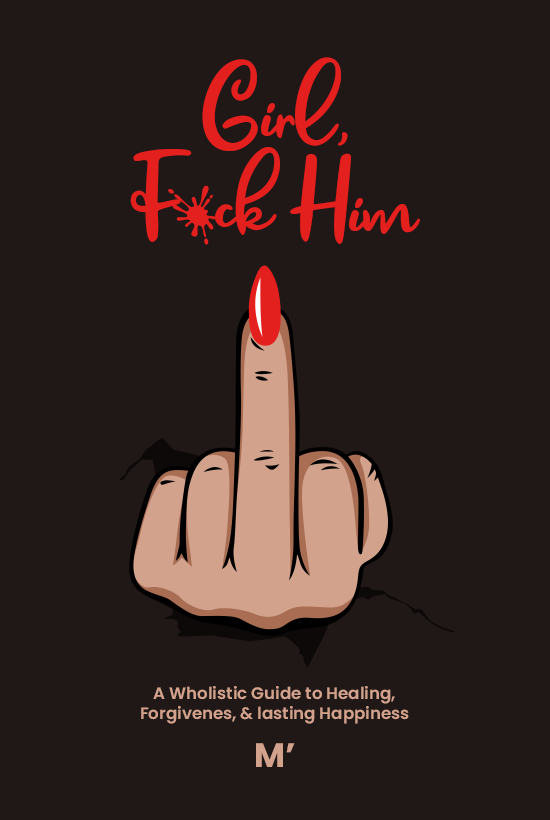
I grew up in an environment where self respect was considered rebellion. Nothing personal, just what happens when you grow up in a conventional Nigerian home.
I’m sure many other cultures can relate: Asians, Caribbeans, and many other people often know what it’s like to be in a familial system that is based primarily on a sense of duty.
Again, nothing personal; I guess my parents’ parenting style was a mixture of the best they knew and societal expectations. My siblings and I had to consider their stance and mood before we spoke. We had to weigh all the possible backlashes and consequences, and at times when we did speak, we often learned a silent lesson from the withdrawal of affection and care that followed.
The Journey to more Self Respect
If you asked me, I would have considered myself to be a person with a healthy amount of self-respect, and in many ways I was. I carried my head high, armed myself with a bunch of self respect quotes, and didn’t let anyone disrespect me. The problem came, however, when it involved people whose opinions I cared about.
I found myself lacking boundaries and afraid to say what was on my mind, because of the “consequences” that might follow.
On self respect, everything started coming together when I began to develop a deeper (notice I didn’t say higher) esteem of self. Yes, I had good self-esteem, but I don’t think it was anchored deep into the core of my being. I felt worthy, but I felt more worthy based on how I was perceived by people whose opinions I cared about. To find true esteem and give my self respect meaning, I had to begin the lifelong journey of honoring the true essence of my existence – the whole of my existence.
The journey to true esteem is a long-ass topic for another day, but by cultivating more esteem for self (which, I must say, is not all roses and candles), reinforcing self-respect through my actions started to come gradually, and almost naturally.
What if I cannot cultivate Self-esteem?
I have noticed that it goes both ways: cultivating self-esteem helps you act in ways that reinforce self respect, and acting in ways that reinforce self respect helps you cultivate self-esteem. So don’t worry if you struggle with self-esteem; be still and reinforce self-respect with your actions.
How do you reinforce self-respect with your actions? I don’t have the answer to that question because I cannot define self respect for you. How about you start from here: ask yourself, “what is self respect to me?” Define self respect for yourself and it will be easier to uphold it.
8 ways I Practice Self-respect every day
1. Considering my needs
I used to always obsess over what everyone else needed to get their trains chugging, leading me to oftentimes abandon my own train. With more self-respect, I am beginning to consider my own needs in that situation. Yes, I understand that you need this and to the best of my ability I will try to be respectful/honoring towards that need, but what about me?
2. Asking for what I need
I’m learning to ask for what I need. Having a supportive set of people around you is incredibly helpful here. If you don’t have supportive people, you’re just going to have to go right ahead and screw what the world thinks. Be truthful, be honest, and ask for what you require. Make your case; ignore the look of displeasure that crosses their face (yes, that one that scares you so much). If they object, you are allowed to remain in the conversation.
I think your self-esteem also plays a part in how you ask and what you ask for. When you see yourself as more, you will naturally begin to demand more from the people in your life.
3. I’m learning how to say no
I have good intentions, so the most difficult thing about learning to say no for me is the fear that people will think I don’t. The scariest part about this is the thought that I will be labeled a bad person, and even if they do not label me a bad person, I sort of do the mental labeling for them.
This, for me, stemmed from feeling alienated from the family fold whenever I went along with how I was feeling instead of what was expected. I am now learning that I wasn’t a bad child for wanting to act in my interest and I’m finding the balance between acting in my interest and considering the needs of others. That’s the tricky part.
4. I’m pausing to breathe in situations
A lot can happen when you pause to breathe in situations. It feels like you plug out of the situation and right back into your body. You are now able to assess the situation objectively and re-discover your center.
Learning to take a conscious breath in the middle of situations that trigger me is the secret of how I refocus my power and remind myself of my existence and power to choose in the present moment.
5. I now realize that I don’t have to fill in the empty spaces
Instead of fussing over awkward silences or rushing to fill in the gap that ensues from an awkward situation with an even more awkward contribution, I just let things be and remain aware of what I feel.
I’m free to laugh at myself, feel embarrassed, or just remain silent if I please. I’m free to remain centered in how I feel during human interactions; I do not have to uproot myself out of my body and begin obsessing over controlling what the other person is feeling – even if they are someone I care about. I think one huge part of respecting myself, surprisingly, has been letting other people work through their mental processes without throwing myself in there. I trust that intrinsically, I am what I am, regardless of what the outcome of your rumination will be.
In the end, everything will play out the way it is meant to and everyone will work through their mental processes according to their ability and choice.
6. I am giving people space to love me
I like to picture love, in the sense of a romantic relationship, like a protective, metaphysical dome upheld by two people. You bring your energy to the table and the other person brings theirs. One person cannot make up for the covering that the other person is not bringing all the time, you’ll wear yourself out. This is one of the places where, I believe, you need to ask: what does self respect mean to me? Is this respectful to me and my consent to participate in this relationship?
I can bring my energy to the table and give that 100%, but I cannot and will not use my energy to overcompensate for the absence of yours. I will execute my part to the best of my ability and give you space to do yours.
It’s not just about self-respect; I believe that in giving people space to love you, you also give them a unique chance to discover you; to enter into your world and fall in love with you (and that can be incredibly exciting for them). It’s all about the energy of being and letting be.
7. I no longer negate myself
Does anyone else say something profound and then type a “lol” at the end to sort of “dilute” it? Yeah, I’m really preventing myself from doing that these days.
I’ll say what I mean, and stand by it, no matter how scared it makes me feel. The fact that I feel nervous after doing something audacious does not mean I did the wrong thing. I will gradually settle into that knowing.
8. I realize that nobody is threatening me
These days, I am pausing to realize that I’m not in danger. I used to be mortally terrified of confrontations: my heart would break out in palpitations and I would be drenched in cold sweat. These days, I’m pausing to ask myself “what is the danger I am in?” Apart from the fear of displeasing someone or losing connection, am I in any mortal danger? Funny thing is I realize that the right people actually want you to speak your mind. They’re happy when you do because it makes navigating the relationship easier.
I am an adult in full control of my surroundings and I have the ability to use my voice. The danger of speaking out that I experienced as a child no longer physically exists. If I still feel like I can’t speak freely without getting punished in any of my adult relationships, it’s unhealthy and I have the power to reevaluate it.
Scratch that, I have a duty to reevaluate it.
Liked this post? Well, theres more!
-
Sale!

Dinner Plates – Japanese Minimalism
$28.00$18.00 -
Sale!

Round Table Anti Slip Mats – Modern Home
$14.70$9.90 -

-

Indigo Blue Ceramic Vase
$101.00


5 Ways You are Ruining Your Relationships
In a recent study conducted on 120 men and women, the men answered yes to a degree of 9 points and beyond to the question: “Does economic power make you more attractive?” For the women, it was around 5 and 6 points on a scale of

The Real Reason Why You Will Marry the Wrong Person
Since people seldom marry for land, peace treaties, and things of that sort anymore, romantic love (or our idea of it) is the new order of the day. Romantic love is largely perceived as partner compatibility, and a large part of partner compatibility is based on

Your Ultimate Secret Weapon to Own the Room
One day, many years ago, I walked into a cosmetic vendor’s store. I may have come to get other things, but I remember that I was looking to get a new perfume in particular. I studied the shelves for a minute and picked up a curious-looking green bottle…
Follow
Error: No feed found.
Please go to the Instagram Feed settings page to create a feed.


